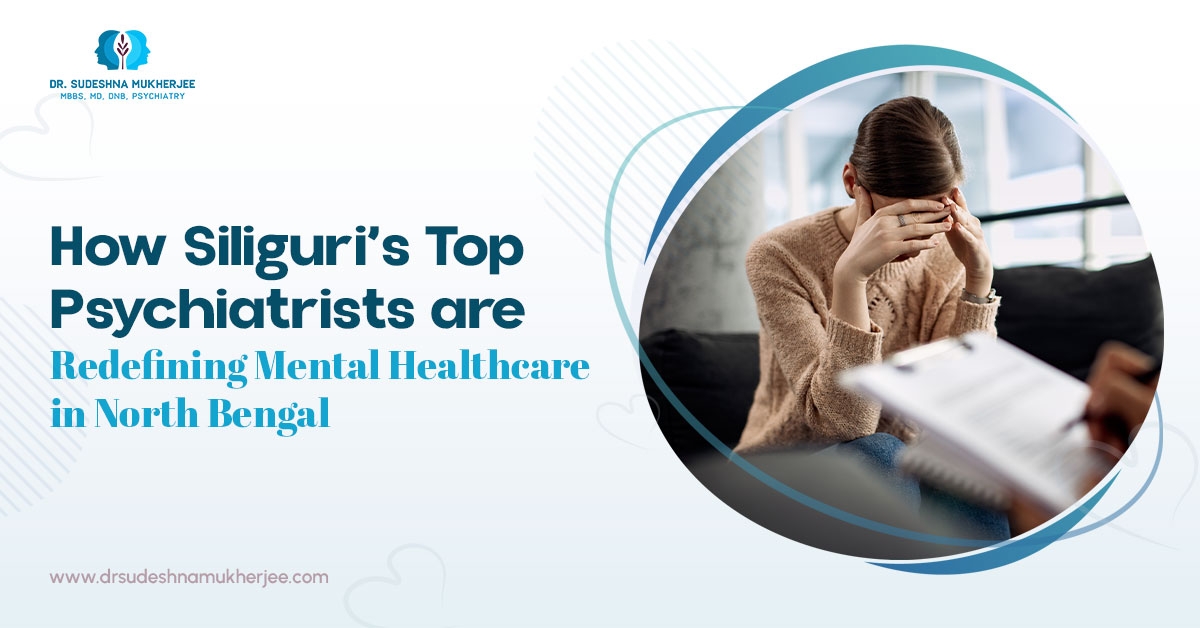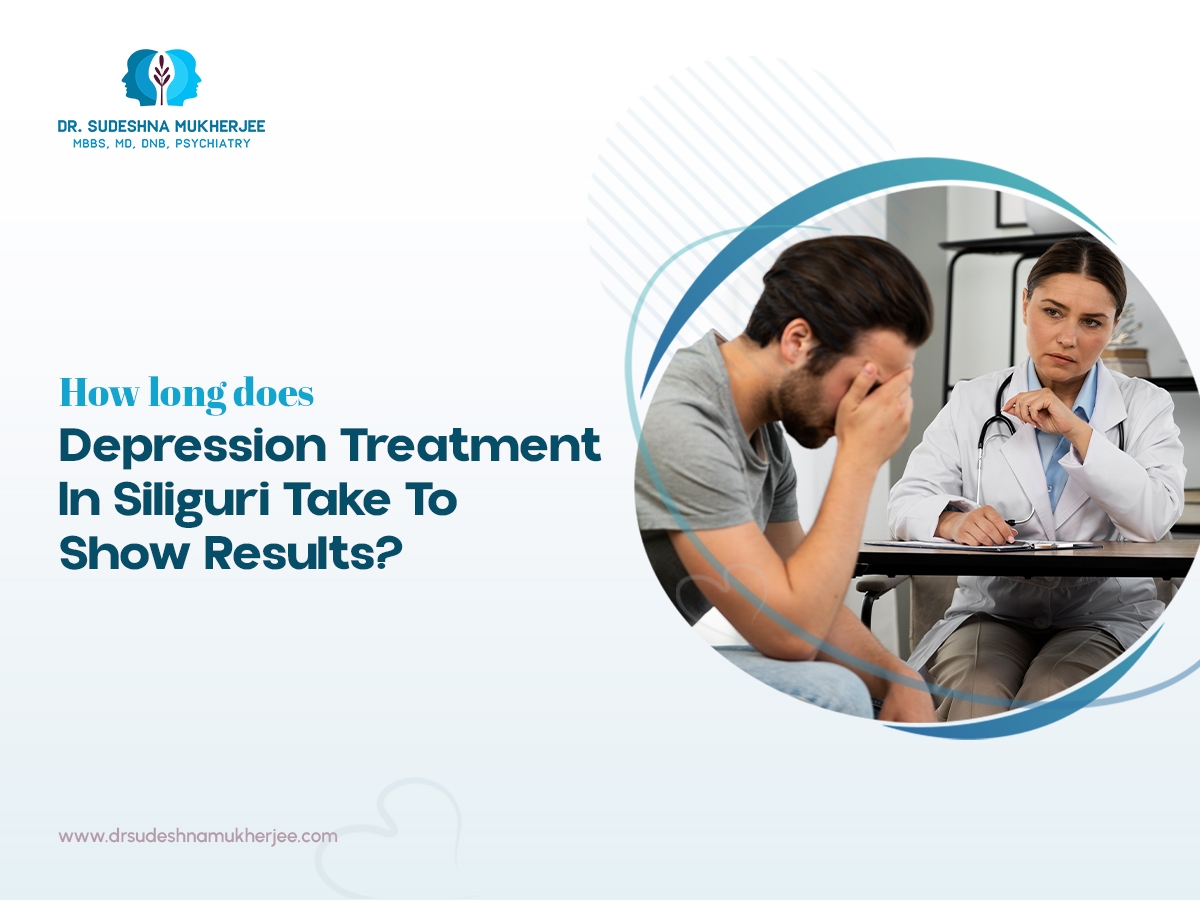The term "psychosis" refers to a group of symptoms that occur when an individual struggles to distinguish between reality and illusion. Disorganized thinking, delusions, hallucinations, and reduced functioning are some of the consequences here.
Psychosis has a profound effect on a person's quality of life, relationships, career, and general well-being. Therefore, the right medical care is vital to people with psychosis. You might consult the leading psychiatrist in Siliguri for effective treatment for psychosis.
To improve the lives of people impacted, it is essential to understand the many forms and symptoms of psychosis, how it functions, and how medical treatment might help.
Overview of Psychosis
Psychosis is a symptom of underlying mental health concerns, including schizophrenia, bipolar disorder, schizoaffective disorder, or severe depression, rather than a diagnosis in and of itself.
This mental health problem is responsible for a detachment from reality, which may show up as having wildly erratic thought patterns. And, this may include seeing or hearing things that aren't there (hallucinations), or having false ideas (delusions).
Psychotic episodes can be acute, transient, or a component of a chronic mental illness. The prognosis is considerably improved by early diagnosis and treatment.
It can also result from a variety of different disorders that impact your body and brain, and among them are:
- Many forms of dementia, including Alzheimer's disease.
- Multiple sclerosis.
- Deficits in vitamins B1 (thiamine) and B12.
- Infections (meningitis or encephalitis) that affect the brain or spinal cord.
- lupus.
- Lyme disease.
- Stroke and other neurological (brain-related) conditions.
Understanding the Types of Psychosis
There are two major categories of psychosis:
Hallucinations
These occur when some areas of your brain, by mistake, behave as though your senses, including hearing, touch, smell, taste, and vision, feel like real-time events. Hearing voices is the most common here.
Delusions
When someone has an unwavering conviction in something that is not real, it is called a delusion. These are unfounded ideas that someone clings to tenaciously, even in the face of rejection by others or overwhelming evidence to the contrary.
Psychotic Symptoms
Although the symptoms of psychosis can vary widely, typical ones include:
- Perceiving things that are not there is known as hallucination. Here, the most prevalent type is auditory hallucinations, which involve hearing voices.
- Delusional symptoms are strongly believed to be true, very common in psychotic disorders, accompanied by paranoia, like thinking one is being watched or persecuted, for example.
- Disorganized thinking is the inability to practically link ideas or arrange them, which leads to incoherent words or actions.
- Abnormal motor behavior or catatonia, such as unusual motions or decreased response.
- A lot of people don't realize that their sensations aren't based on reality.
Effect on Life Quality
Psychiatric conditions like psychosis can interfere with almost every element of a person's life:
Social isolation, like people may distance themselves from others due to fear, paranoia, or stigma. Get expert advice from the top psychiatrist in Siliguri for optimal psychosis care.
Issues with employment and education, because it may be challenging to keep a job or go to school if one has cognitive instability. But the right support from a psychiatrist can help one live a fulfilling life.
Physical health concerns like sleep deprivation and poor self-care can all lead to a decline in physical health.
Relationship struggles can occur because of unpredictable behavior or misconceptions about the illness, which can affect friendships and family.
Discrimination stemming from misconceptions or stigma about psychosis can make rehabilitation and social reintegration more challenging.
Importance of Treatment
In order to effectively manage psychosis, the importance of psychiatric care is invaluable. Prompt and thorough medical attention is crucial, which usually consists of:
Early Intervention
In cases of first-episode psychosis, early intervention treatments are vital. Early diagnosis and care, which frequently stops further deterioration of mental health, include medicine, treatment, and social support specifically designed for patients.
Medication
Medications like antipsychotics are the mainstay of treatment for psychotic disorders. They help lessen or get rid of symptoms like delusions and hallucinations. Also, prevents the risk of adverse effects and drug abuse.
Psychotherapy
Cognitive behavioral therapy for psychosis (CBT) improves coping mechanisms and challenges faulty thinking to help people manage the symptoms and side effects of psychosis.
People with psychosis can recover or effectively manage their symptoms with early diagnosis, adequate treatment, and strong support networks. Besides medications and talk therapy, a holistic approach is important to meet a wide range of requirements, combined with physical health treatments, and lifestyle modifications (diet, sleep, exercise). See one of the most trusted psychiatrists in Siliguri, Dr. Sudeshna Mukherjee, for optimum care and management.




